A one week flipped learning environment to introduce Object Oriented Programming
This post describes a teaching activity that is run for the Cardiff MSc. programmes. The activity is revolves around a two day hackathon that gets students to use Python and object oriented programming to solve a challenge. The activity is placed within a flipped learning environment and makes use of what I feel is a very nice form of assessment (we just get to know the students).
This year is the third installment of this exercise which came as a result of the MSc advisory board requesting that object oriented programming be introduced to our MSc.
Before describing the activity itself let me just put this simple diagram that describes the flipped learning environment here (if you would like more info about it be sure to talk to Robert Talbert who has always been very helpful to me):
Description of what happens
After 3 iterations and a number of discussions about the format with Paul Harper (the director of the MSc) I think the last iteration is pretty spot on and it goes something like this:
Monday: Transfer of content
We give a brief overview of Python (you can see the slides here) up until and including basic syntax for classes.
Tuesday + Wednesday: Nothing
Students can, if they want to, read up about Python, look through videos at the website and elsewhere, look through past challenges etc… This is in effect when the knowledge transfer happens
Thursday: Flying solo followed by feedback
Students are handed a challenge of some sort (you can see the past two here). Students work in groups of 4 at attempting to solve the problem. On this day, the two postgrads (Jason and Geraint) and myself observe the groups. When we are asked questions we in general ask questions back. This sometimes leads to a fair bit of frustration but is the difficult process that makes the rest of the process worthwhile.
Here is a photo of some of the groups getting to work:
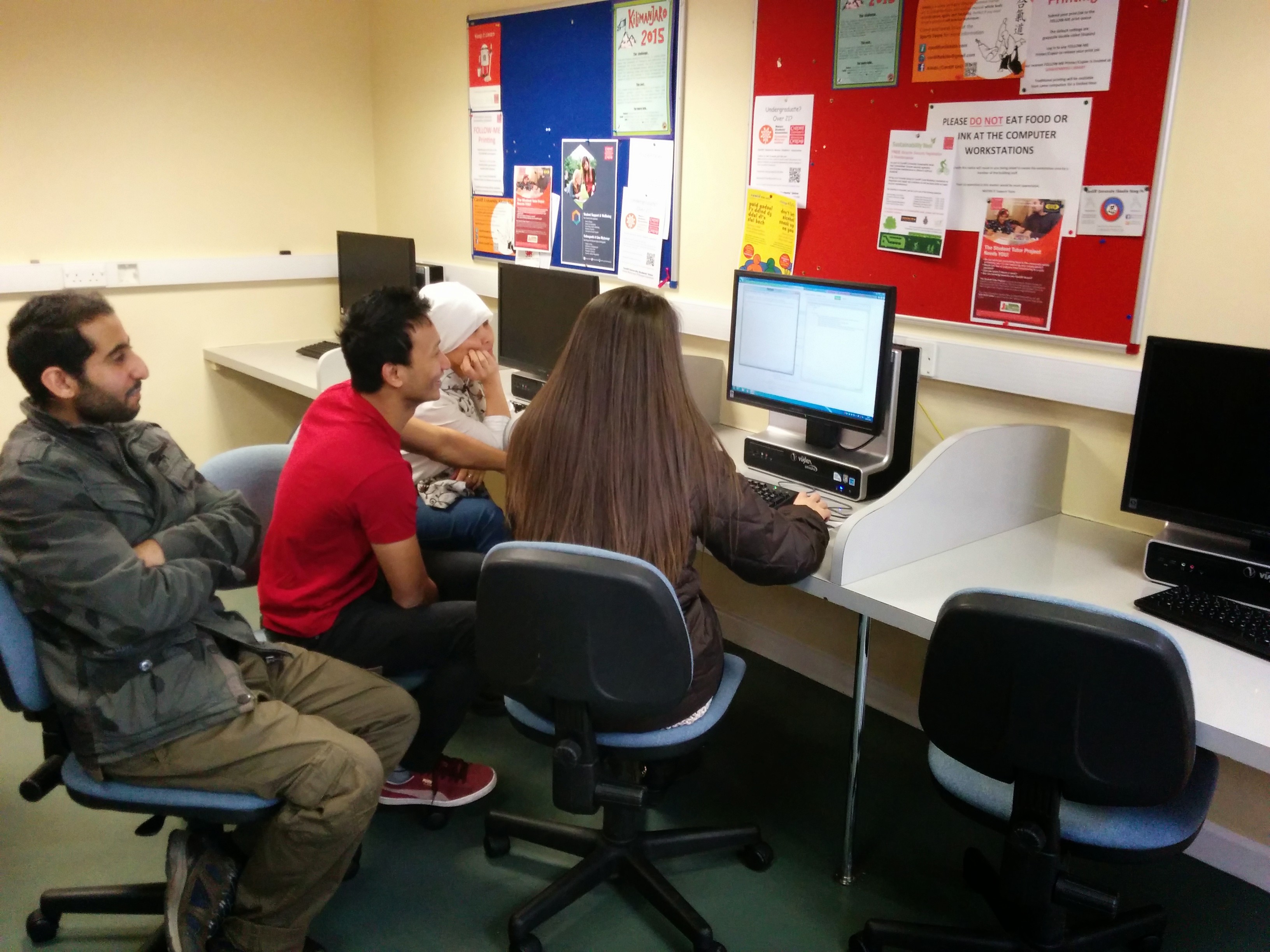
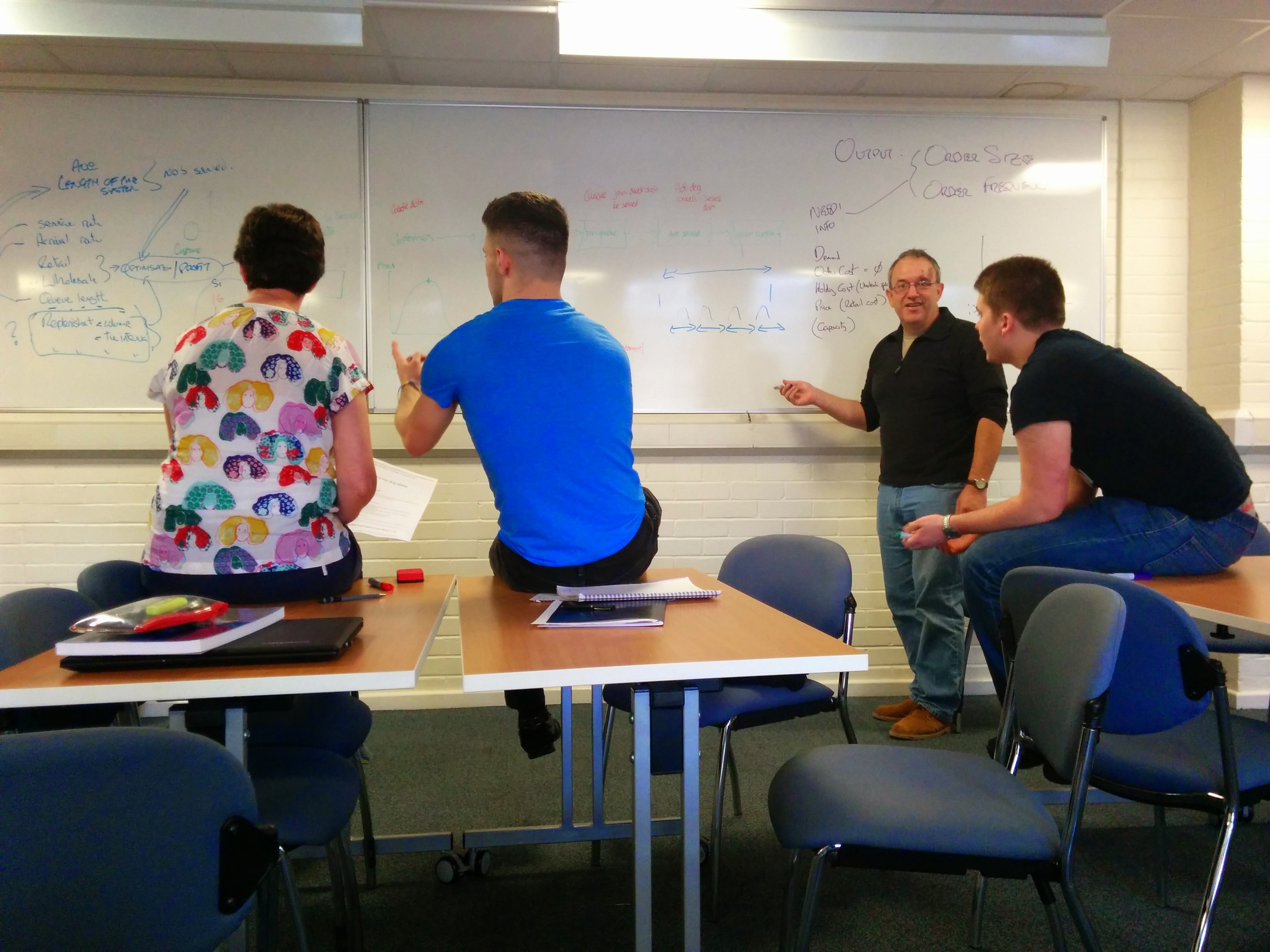
At the very end of the day (starting at 1600 for about 30 minutes with each group). During this feedback session go through the code written by each group in detail, highlighting things they are having difficulty with and agreeing on a course of action for the next day. This is the point at which the class ‘flips’ so to speak: transfer of content is done and difficulties are identified and conceptualised.
Here is a photo of Jason, Geraint and I at the end of a very long day after the feedback sessions:
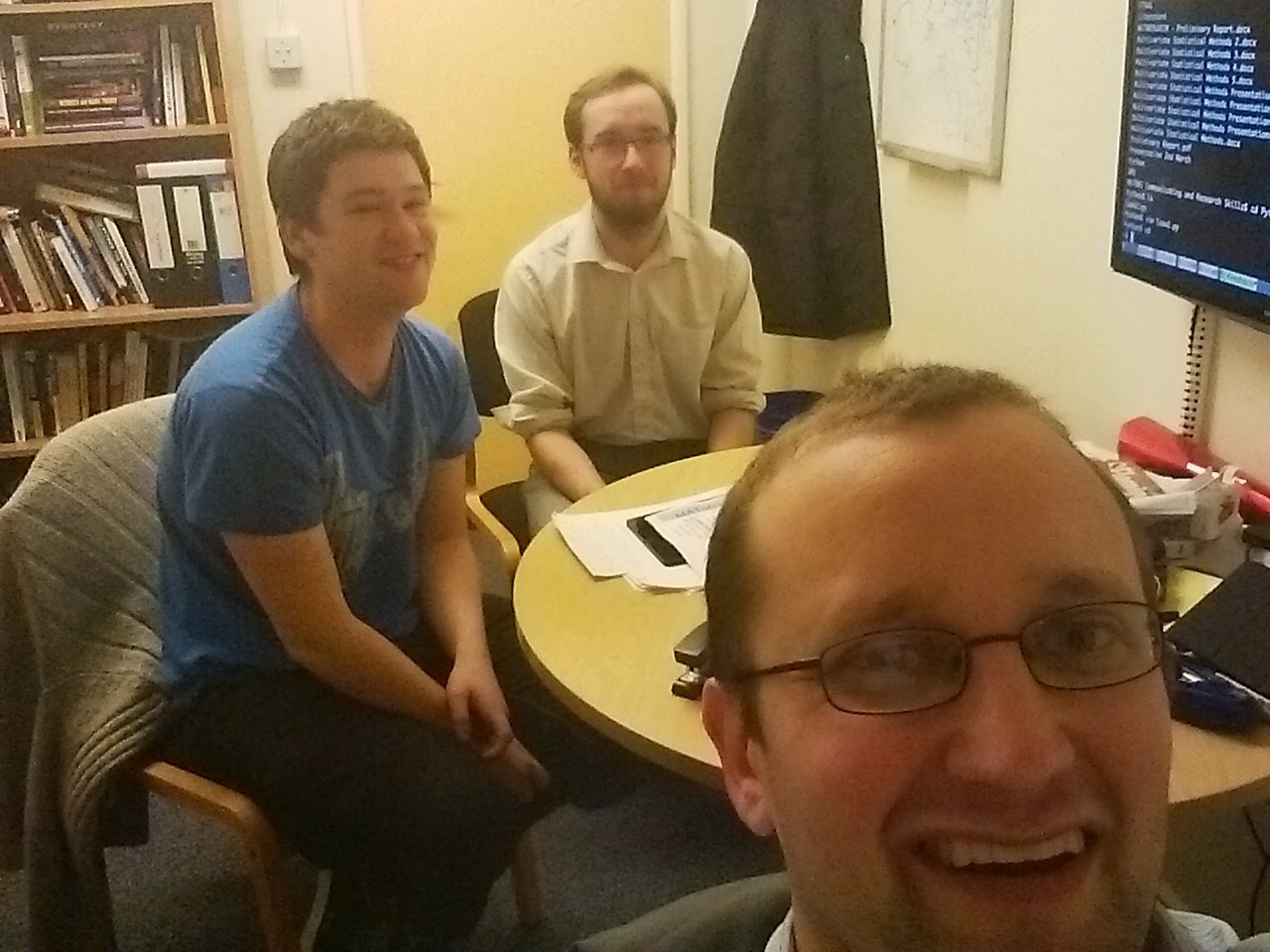
The other point of this day is that we start our continuous assessment: taking notes and discussing how each group is doing:
- Where are they progress wise?
- What difficulties do we need to look out for?
- How are the groups approaching the problem and working together.
Here you can see a photo of Jason in front of the board that we fill up over the 2 days with notes and comments:
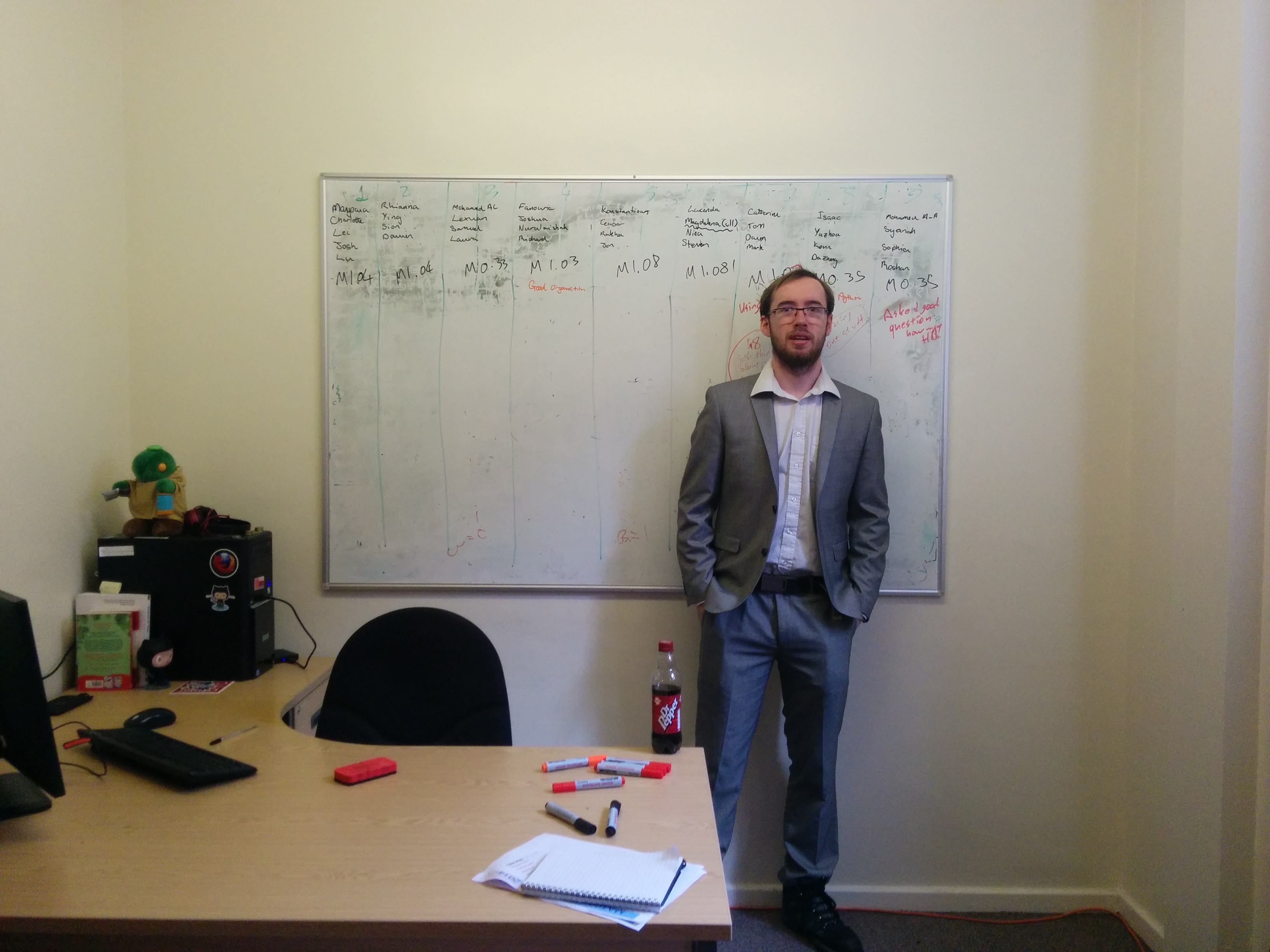
Friday: Sprint finish with more assistance
On the second/last day students are given slightly more assistance from Jason, Geraint and I but are still very much left to continue with their hard work. The main difference being that when students ask questions we sometimes answer them.
Here is one group who managed to crack something quite difficult on the second day:
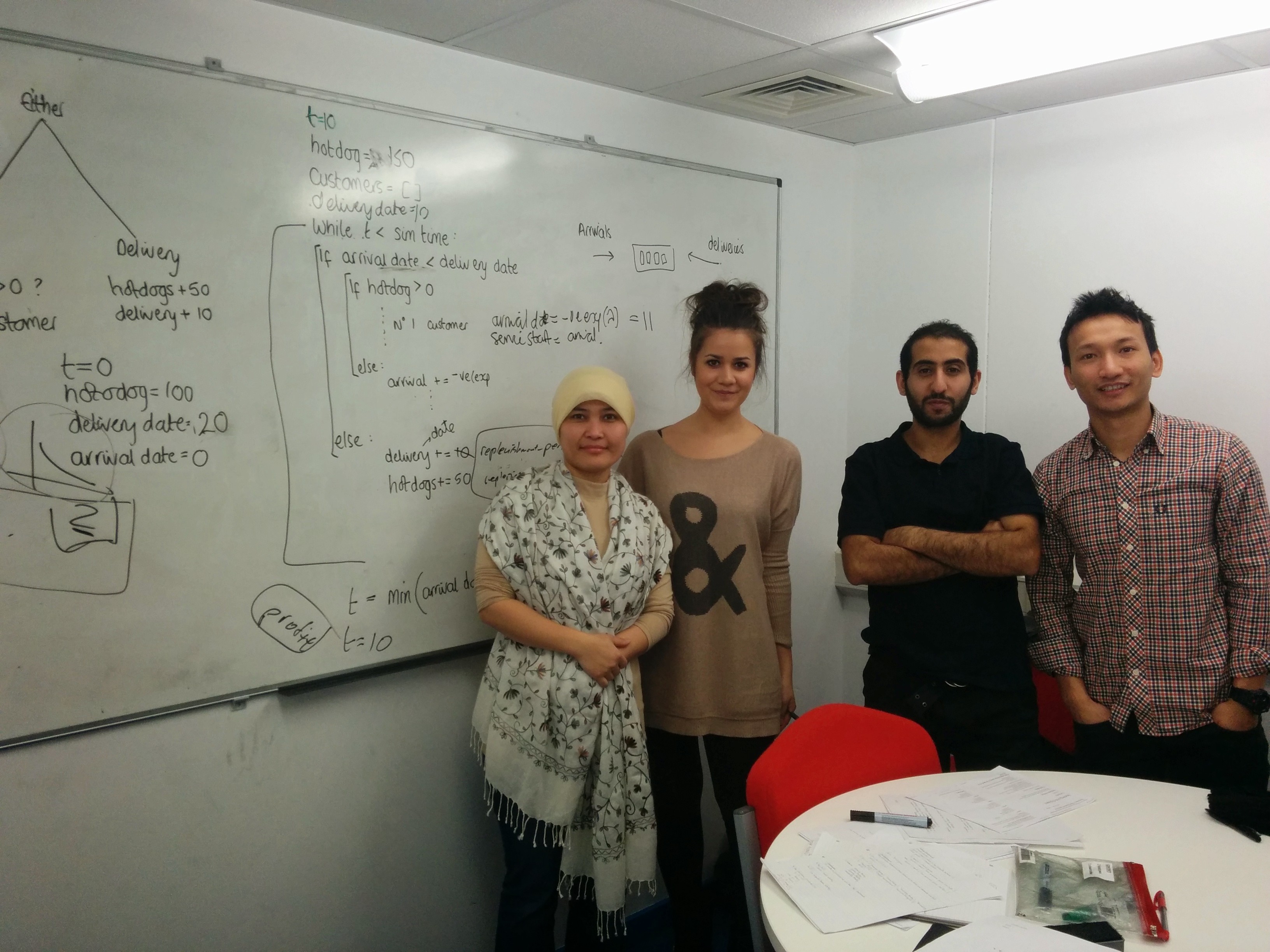
The final part of this day is to round all the students together and announce the marks, which brings us nicely to the assessment part of this activity.
Assessment
I really enjoy assessing this activity. This is not something I say about assessment very often, but we are continuously assessing the students and are able to gain a true idea of how they do. The final piece of code is not what everything is marked on as it is in essence not terribly important.
Here is a photo of the team who did the best this year:
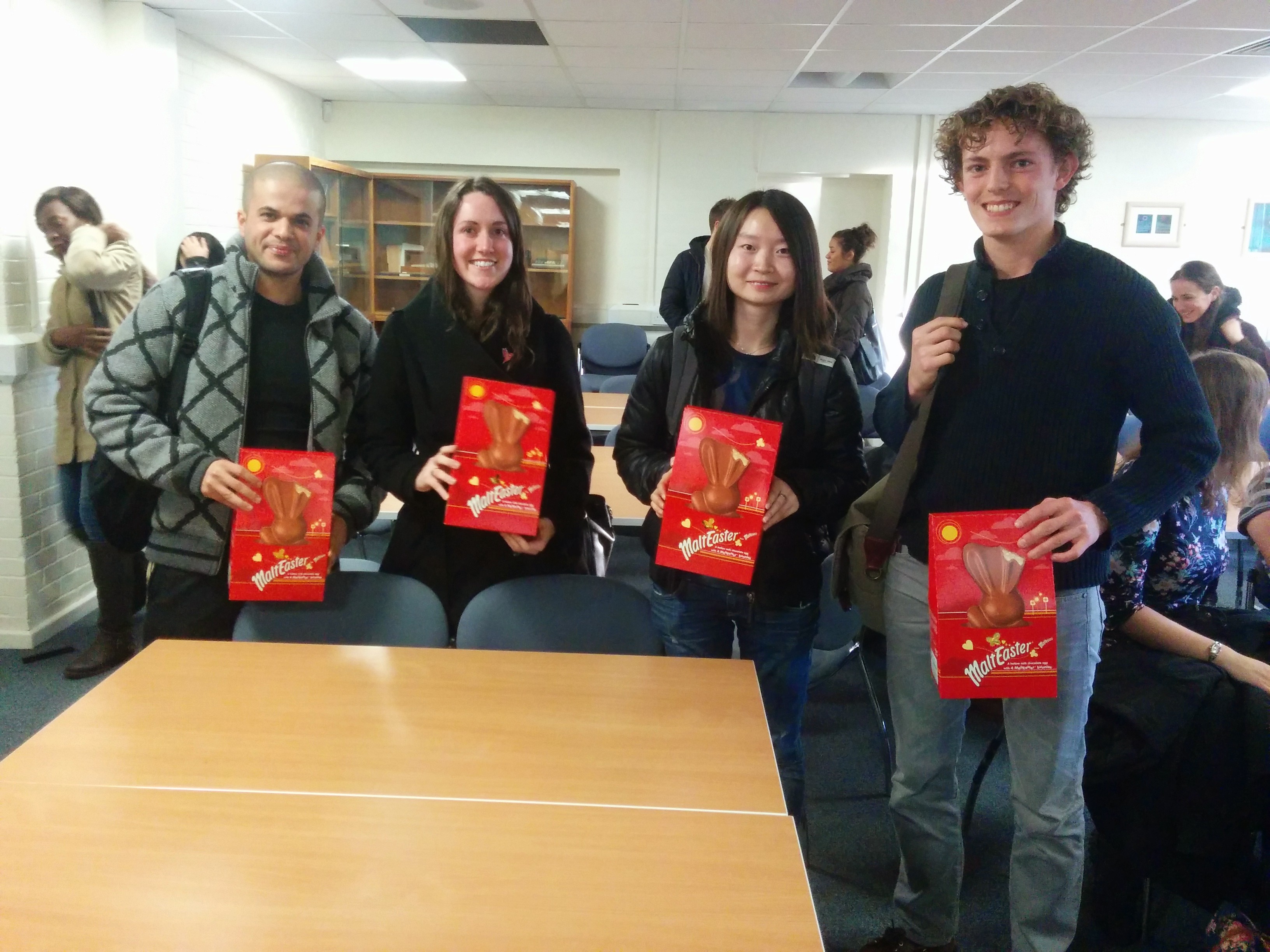
If I could sit with students over the 11 week period of the other courses I teach and get to know them and assess them that way, that is indeed how I would do it.
## Summary
Here is a summary of how I feel this activity fits in the original diagram I had:
As you can see despite ‘being in contact’ with students for most of Thursday I would not consider this contact time in the usual sense as most of that contact is part of the assessment.
This is always a very fun (and exhausting) two days and I look forward to next year.

